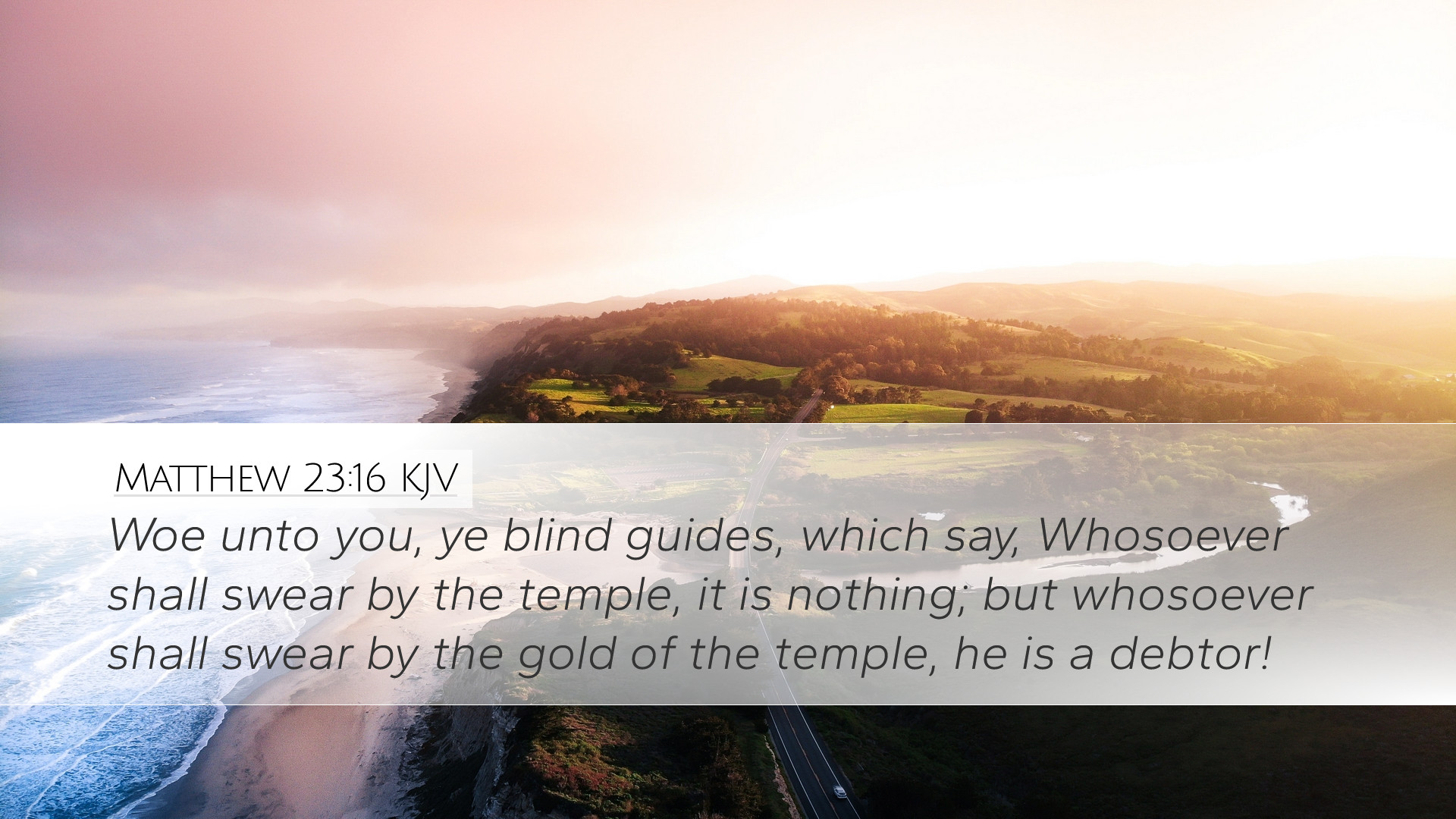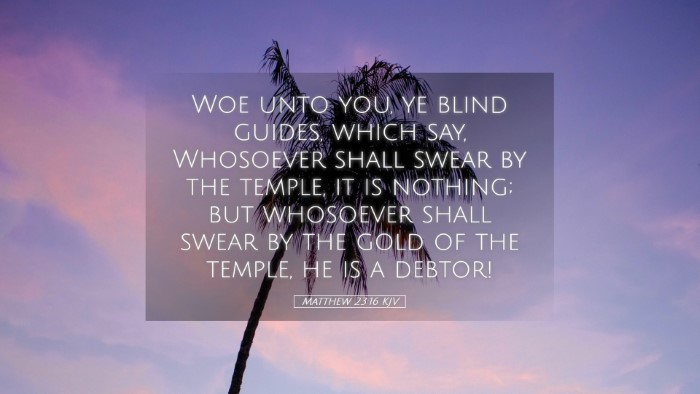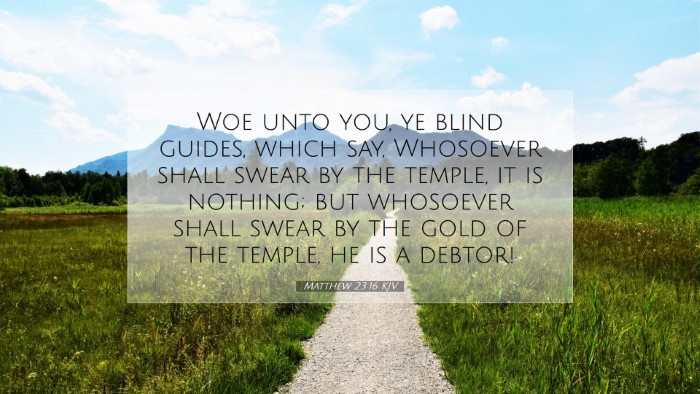Commentary on Matthew 23:16
Verse Text: "Woe to you, blind guides, who say, ‘If anyone swears by the temple, it is nothing; but if anyone swears by the gold of the temple, he is obligated.'"
Introduction
The verse Matthew 23:16 is part of a collection of woes pronounced by Jesus against the religious leaders of His time. This specific verse addresses the hypocrisy and spiritual blindness of the Pharisees and other religious authorities. In their legalistic interpretations, they prioritize the material over the spiritual, which leads to a false understanding of sacred commitments.
Analysis of Key Themes
-
Blind Guides:
Jesus refers to the Pharisees as "blind guides." This metaphor signifies their inability to see and lead others in the truth. Matthew Henry's commentary emphasizes that despite their supposed expertise, they lack spiritual insight and misguide those who follow them.
-
The Temple and Its Gold:
The distinction the Pharisees draw between the temple and the gold signifies a deeper heart issue. Adam Clarke notes the irony of valuing the material wealth of the temple—the gold—over the holiness of the temple itself. This reflects a misaligned priority that places human value on material riches rather than spiritual realities.
-
Legalism versus Spiritual Truth:
Albert Barnes explains that the rabbinic teachings of the time often created loopholes in moral obligations. The woe expressed in this verse condemns such practices that trivialize sacred oaths and lead people away from genuine faithfulness to God.
Theological Implications
Matthew 23:16 raises important theological questions regarding our perception of promises and the sanctity of commitments made in God's name. The religious leaders misinterpret the gravity of swearing by sacred entities, indicating a disconnect between their words and their true intent.
Pastoral Applications
For pastors and church leaders, this passage serves as a reminder of the importance of integrity and authenticity in teaching. It calls for an examination of how well one understands the weight of spiritual authority and the implications of leading others, especially in matters of faith.
Lessons for Students and Theologians
The verse provides a critical lens through which to study the relationship between spirituality and worldly values. The legalistic tendencies of the Pharisees offer a cautionary tale about the dangers of allowing cultural values to overshadow divine principles.
Reflection on the Nature of God
This verse informs our understanding of God’s nature and His expectations for His people. The reluctance of the Pharisees to acknowledge the holiness of what they were managing (the temple) compared to its material aspects points to a broader human tendency to value the temporal over the eternal.
Conclusion
Matthew 23:16 holds profound insights for believers regarding the nature of true leadership and the dangers of spiritual blindness. Jesus' critique exposes the hypocrisy prevalent in religious practices that prioritize human-made traditions over divine revelation. As modern readers of this text, it encourages introspection about our spiritual priorities and the integrity with which we approach our commitments to God and each other.


